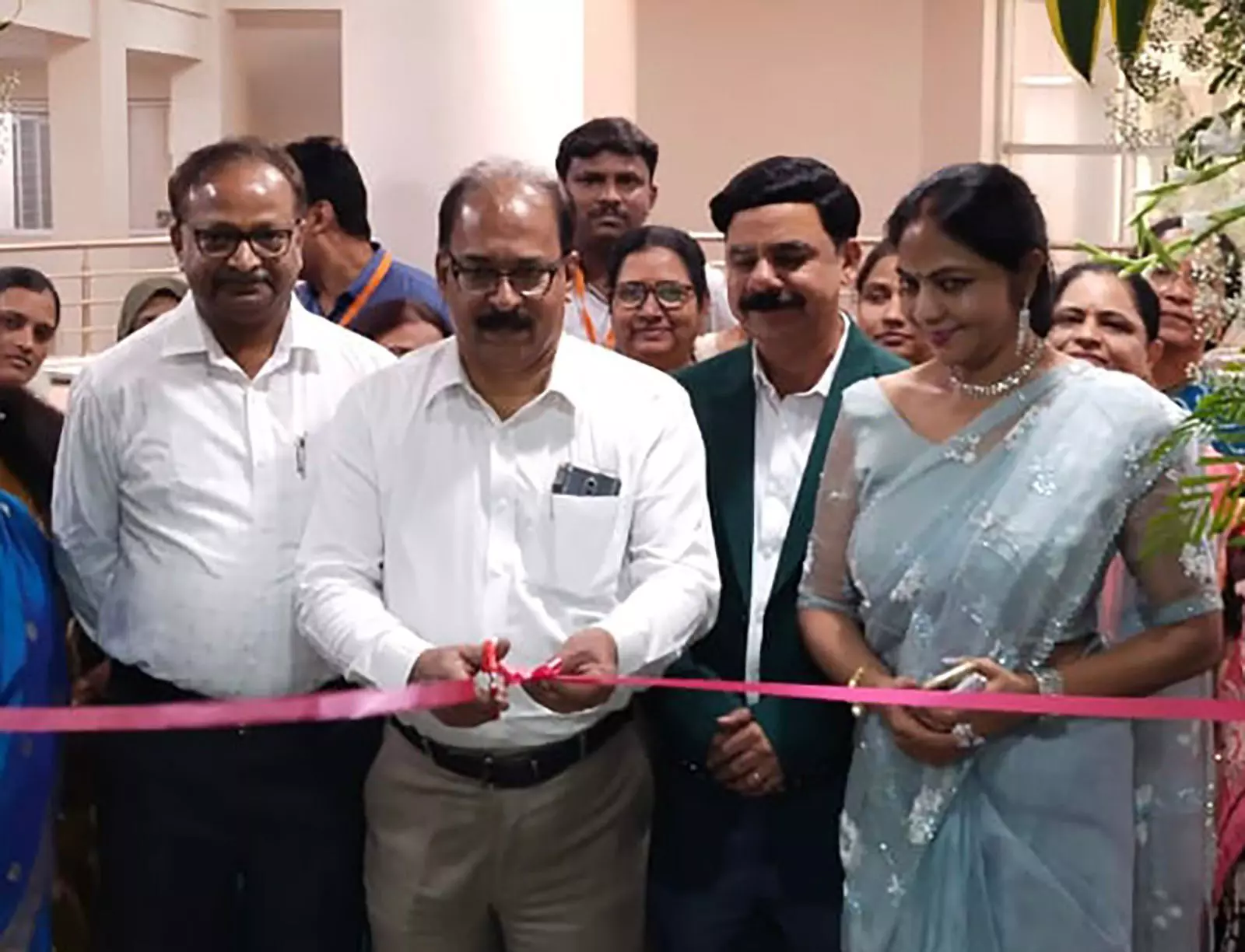First Skill lab in Telangana for CPR training at Osmania Medical College
Doctors, paramedics, Asha workers, police, and sanitary workers will be trained on how to handle emergency trauma cases
By Newsmeter Network
Hyderabad: Emergency medical staff to be skilled for CPR at Telangana's first 'Skill Lab' which was unveiled on March 15 at Osmania Medical College. It will be used to conduct CPR training on Mannequins. Doctors, paramedics, Asha workers, police, and sanitary workers will be trained on how to handle emergency trauma cases. The labs will use Mannequins to be practiced on as there is a shortage of human dead bodies.
The Skill Lab, a long-awaited milestone in the institute's history, was launched by Chief Guest Dr. K Ramesh Reddy, Director of Medical Education, Telangana.
The occasion was presided over by Dr. P Shashikala Reddy, Principal of Osmania Medical College. The event was attended by Dr. Anuradha Medoju, Regional Director (MofH & FW), and Dr. Pandu Naik, Nodal Officer, Skill Lab. Skill Lab is a prototype demo and learning facility enabling healthcare workers to fine-tune their clinical skills before using them in the real world.
From the 13th to the 17th of March, 2023, Telangana will hold a five-day Training of Trainers for Medical, Surgical, Paediatric, Anaesthetic, and Obstetrics specialist doctors from Govt Medical College, Nizamabad, Gandhi Medical College, Guntur Medical College, and Kakatiya Medical College.
What is a Skill Lab?
"Skills labs," an abbreviation for "skills laboratories," refers to specially equipped practice rooms that serve as training facilities, providing skill-based training for clinical skills practice prior to real-life application.
Skill labs are essential for ensuring the quality of medical and paramedical training. Procedural skills are taught, practiced, and assessed until the needed minimum standard for patient care is met.
Why do we need a Skills Lab?
A skills lab can provide a controlled, safe, and forgiving setting in which to create realistic, hands-on, and diverse learning experiences. It's not the same as practicing on real patients, but it's a close second. Besides clinical skills, it aids in the development of communication skills, cognitive abilities, and a compassionate attitude to patient care.
Funding
The Skill Lab is funded by the Government of India's Department of Human Research, Ministry of Health and Family Welfare, under the National Emergency Life Support program. Every year, it will serve about 500 students and postgraduates, as well as several hundred paramedics. The lab is an excellent place for medical practitioners to practice skills such as trauma treatment, basic life support, pediatric emergency, obstetric emergency, and acute cardiac management.
Dr. K Ramesh Reddy spoke on the importance of hands-on skills to tackle emergency cases. He suggested that all departments, especially the clinical departments, should ensure proper training of students in emergency skills. He also noted that the education of the younger generation has shifted from skill learning to bookish learning, which will make a lot of difference in overall medical management.
“The Government of Telangana is also serious about mass training of CPR, with Hon'ble ministers Harish Rao garu and KTR garu conducting the inaugural program for CPR at different levels. The genesis of these skill labs was to train doctors, paramedics, Asha workers, police, and sanitary workers in these skills” he said.
“The state government is procuring mannequins to do programs in different sections, and the training programs should be for small groups so that proper skills can be imparted. The level of training should also differ, with higher level training for doctors and simpler training for medical workers. This particular center in Osmania will be a role model for other centers in the days to come. Similar Skill Lab facilities will be made available at Gandhi Hospital, Kakatiya Medical College, Nizamabad, and Siddipet medical colleges and hospitals and the government of India has given a structured training program” he added.
Principal of Osmania Medical College Dr. P Shashikala Reddy stated, “Our students will now be able to proficiently manage surgical, cardiac, and obstetric crises with better efficiency and ability. Individuals who complete their course will receive a nationally recognized training certificate from this school, which is required of every Indian Medical Graduate. Osmania students will be among the finest in dealing with emergencies thanks to this resource”.
Goals and Objectives of a Skills Lab
- To encourage and support learning through simulation technology and simulators, mannequins, and trainers.
- To provide a safe platform for hands-on learning experiences in order to build relevant clinical skills.
- To provide a controlled, anxiety-free, and risk-free learning environment to students.
- To provide a platform for repeated practice for mastery of relevant clinical skills – for novices and experts alike.
- To build a strong foundation of the fundamentals in the learners.
- To accommodate the unique learning needs of students with diverse backgrounds, abilities, and educational experiences.
- To provide educational materials for students, faculty, and staff of medical and nursing colleges.
- To encourage a life-long learning model.
- Make sure to include all environmental factors and make the learning experience as realistic and authentic as possible.
- To integrate clinical simulation into medical and nursing curricula.
- To increase the preparedness of student learners before transitioning to the real hospital setting.
- To increase their preparedness for dealing with high-acuity cases.
- To build strong communication skills.
- To enable learners to think on their feet.
- To enable learners to make critical decisions.
- To ensure the adaptation of best practices in the industry
- To prepare students to be able to handle emergency situations
- To encourage and demonstrate the power of team-building and collaboration.
- To build problem-solving and decision-making skills through simulations and case scenarios.
- To provide learners with debriefing and positive feedback on their performance.
- To provide learners with real-time feedback through simulator screens, allowing them to reflect and use critical thinking during the process.